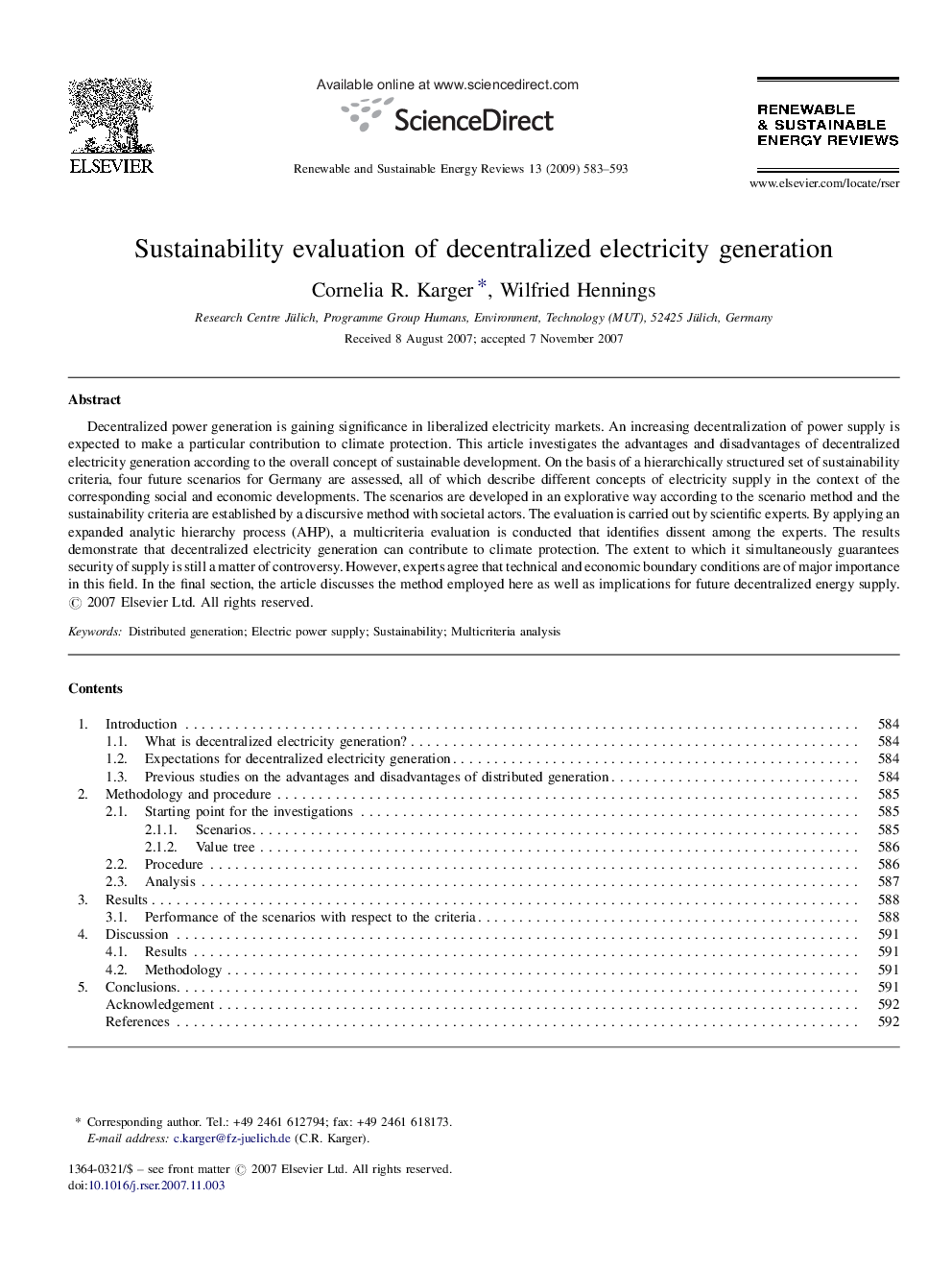| Article ID | Journal | Published Year | Pages | File Type |
|---|---|---|---|---|
| 1752191 | Renewable and Sustainable Energy Reviews | 2009 | 11 Pages |
Decentralized power generation is gaining significance in liberalized electricity markets. An increasing decentralization of power supply is expected to make a particular contribution to climate protection. This article investigates the advantages and disadvantages of decentralized electricity generation according to the overall concept of sustainable development. On the basis of a hierarchically structured set of sustainability criteria, four future scenarios for Germany are assessed, all of which describe different concepts of electricity supply in the context of the corresponding social and economic developments. The scenarios are developed in an explorative way according to the scenario method and the sustainability criteria are established by a discursive method with societal actors. The evaluation is carried out by scientific experts. By applying an expanded analytic hierarchy process (AHP), a multicriteria evaluation is conducted that identifies dissent among the experts. The results demonstrate that decentralized electricity generation can contribute to climate protection. The extent to which it simultaneously guarantees security of supply is still a matter of controversy. However, experts agree that technical and economic boundary conditions are of major importance in this field. In the final section, the article discusses the method employed here as well as implications for future decentralized energy supply.
